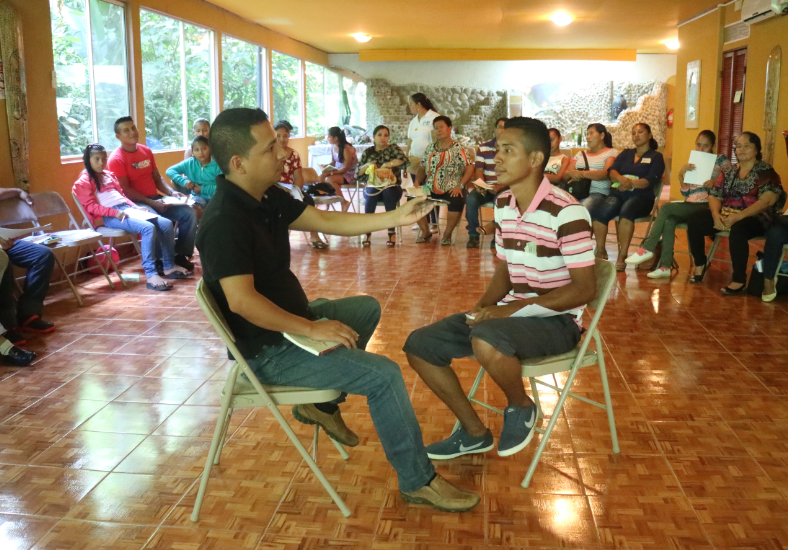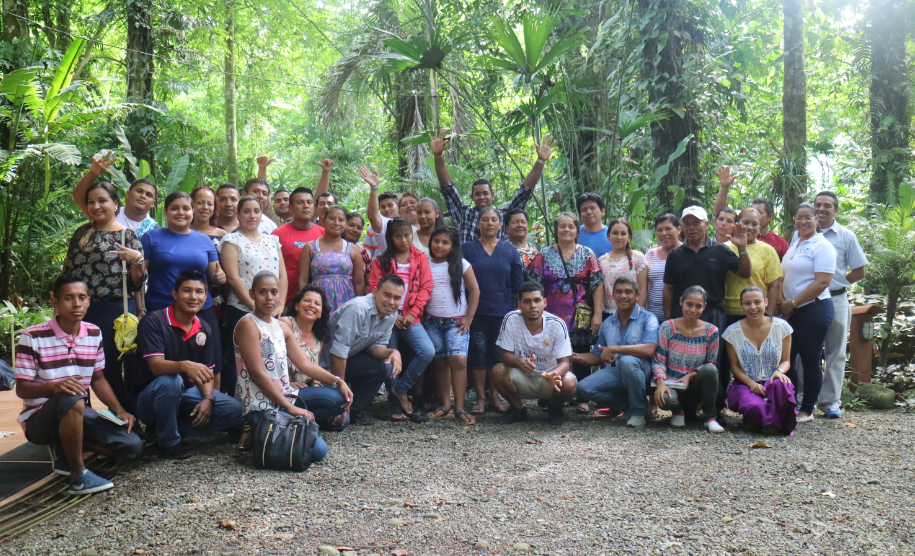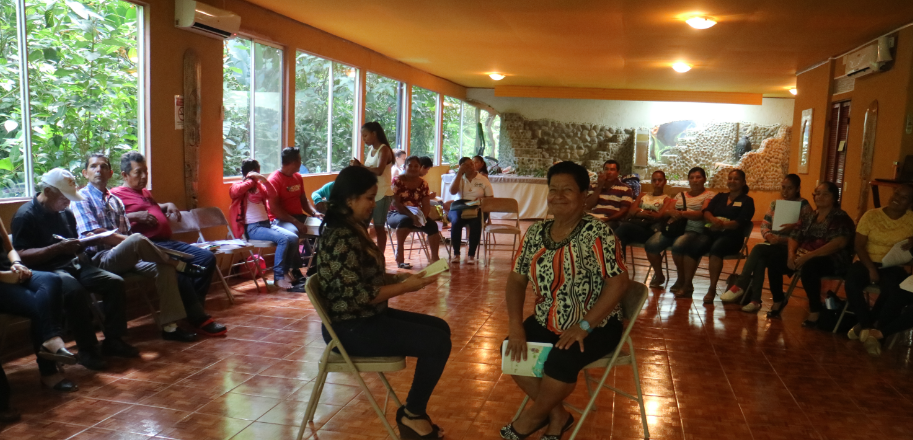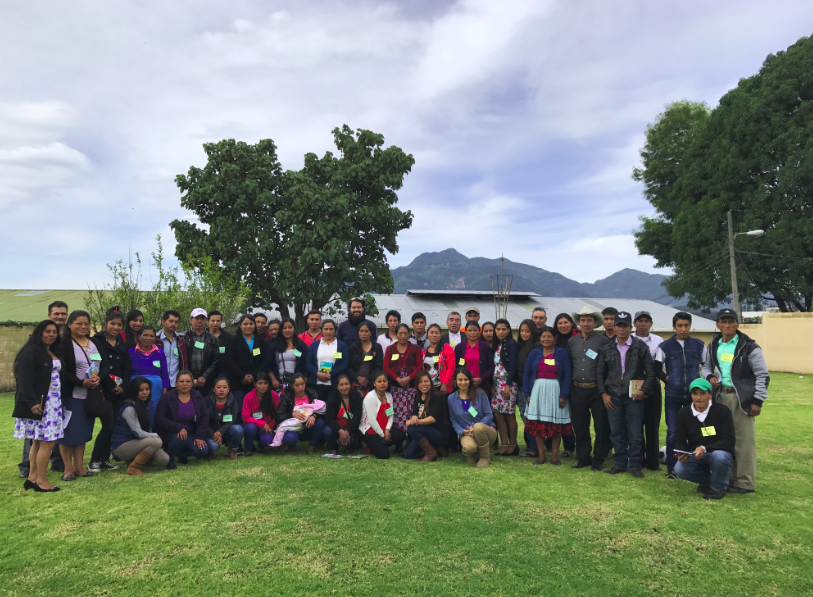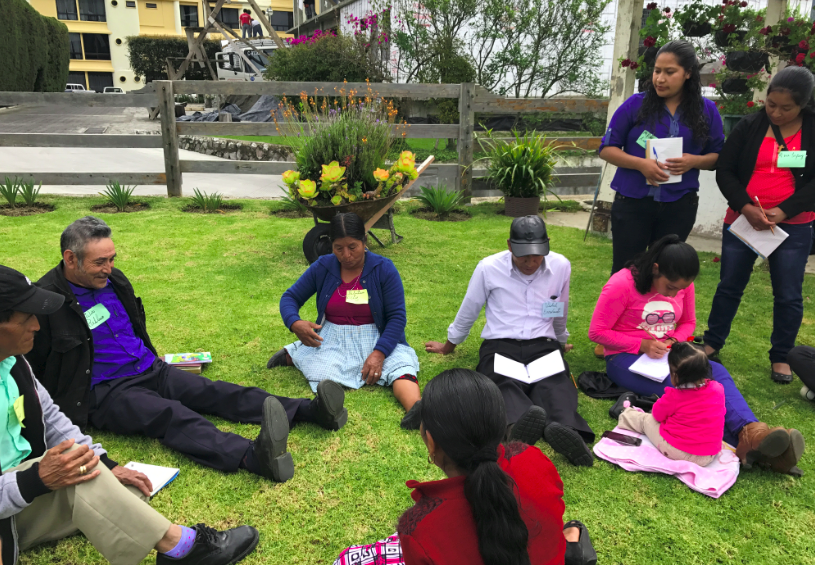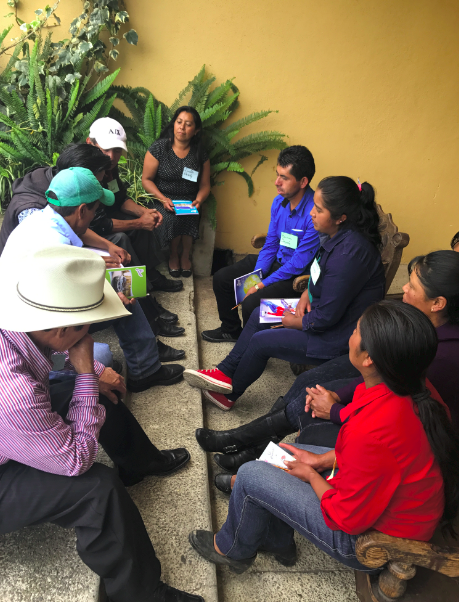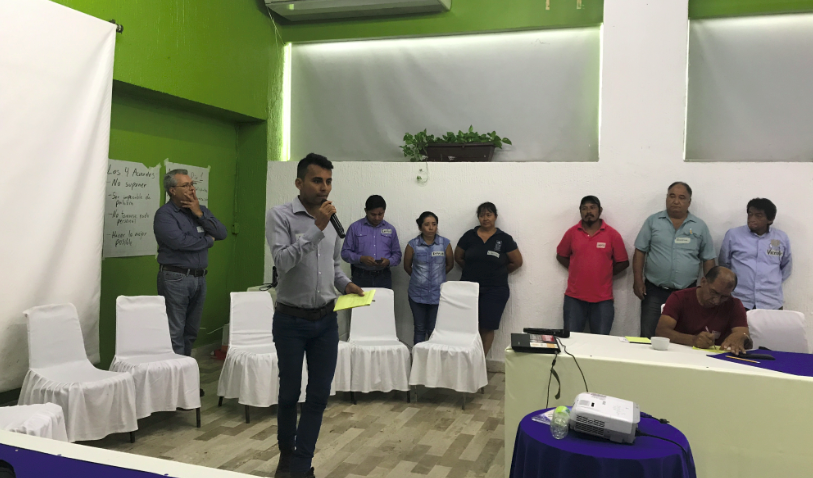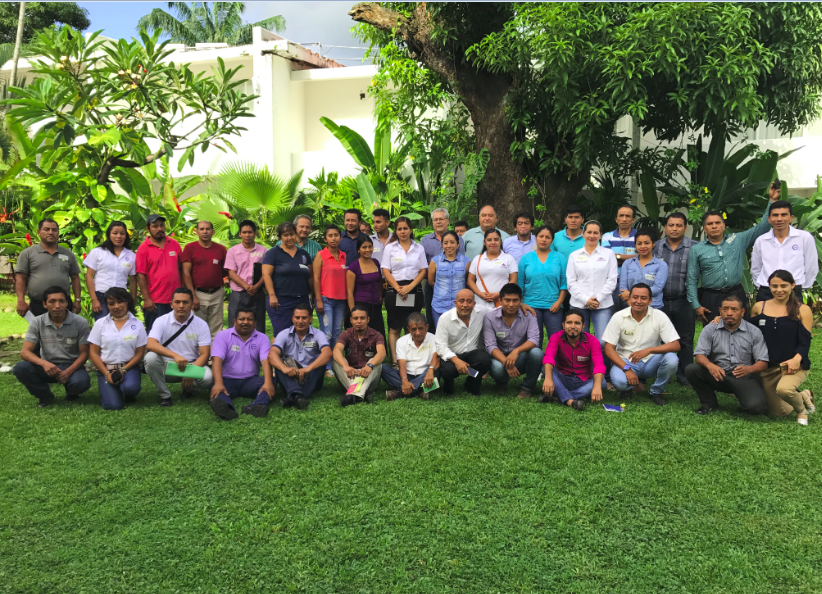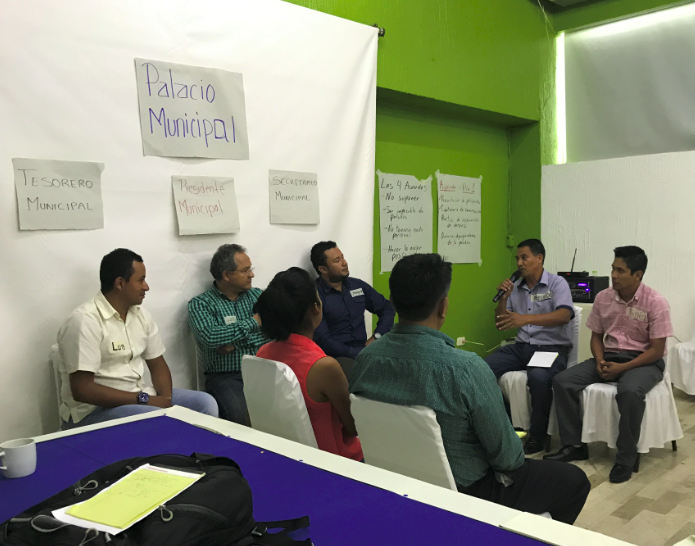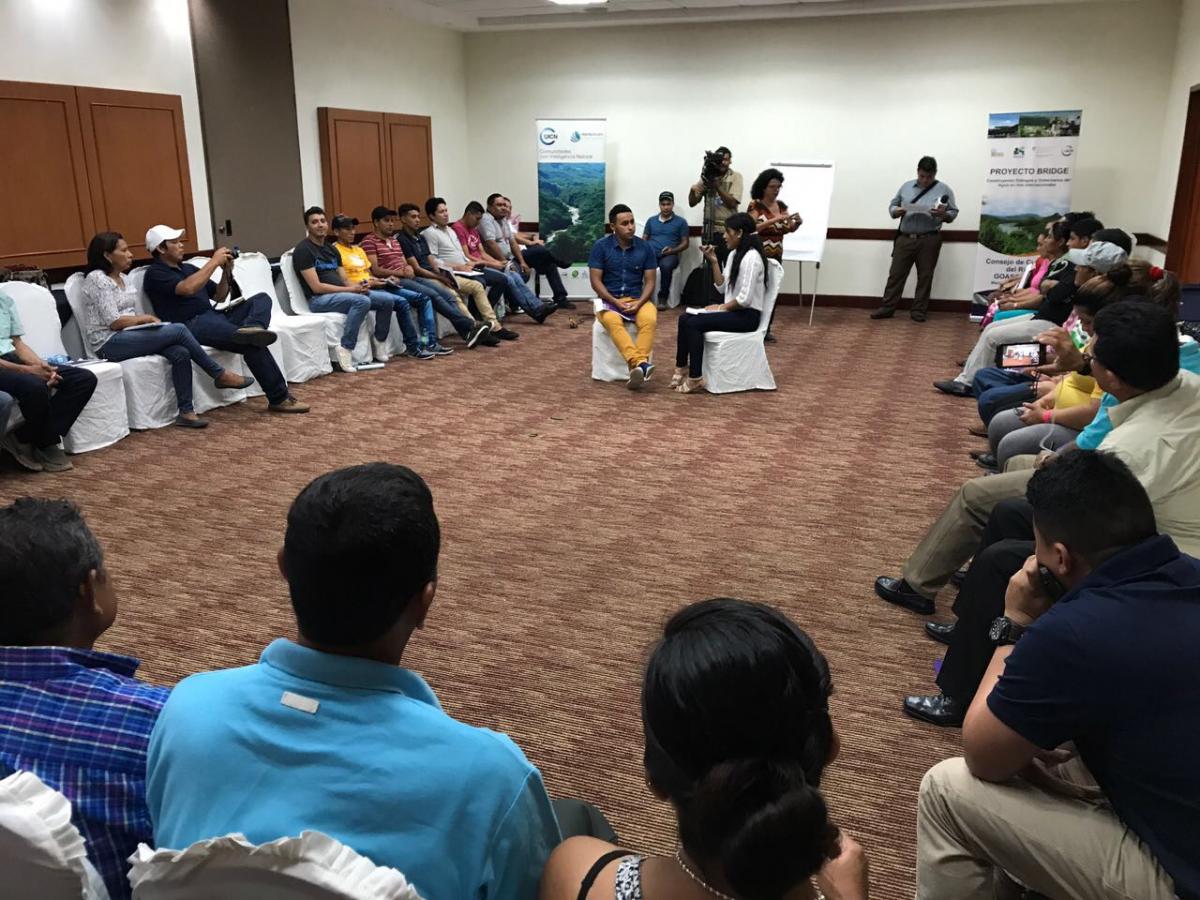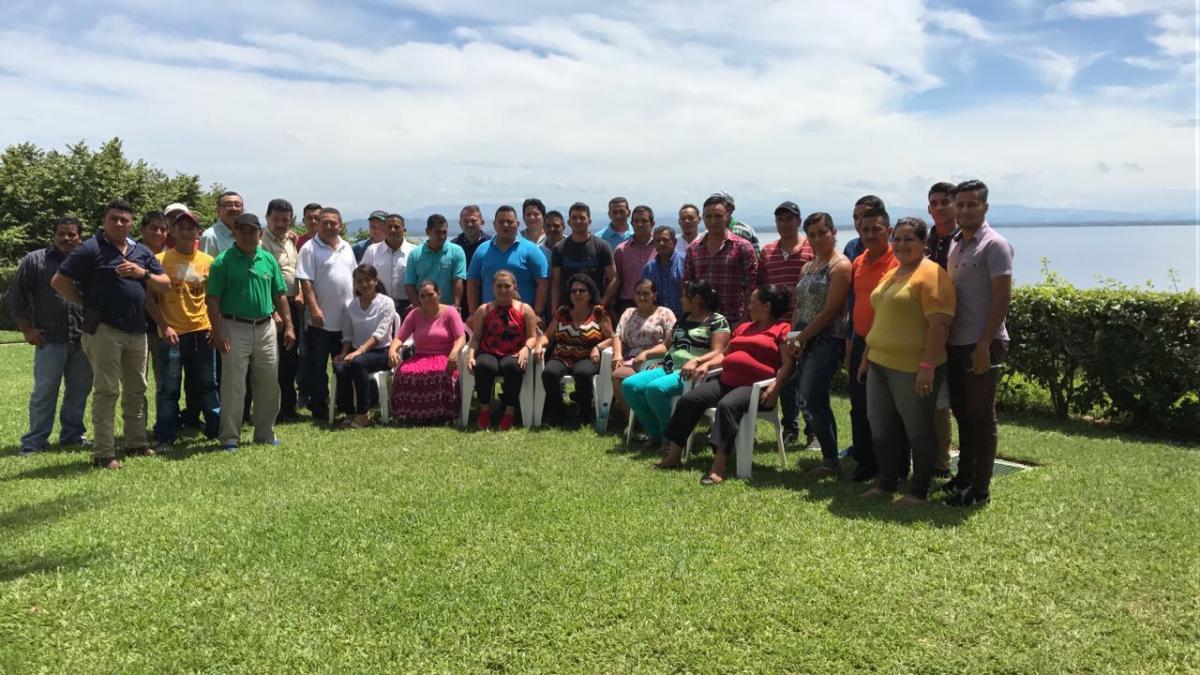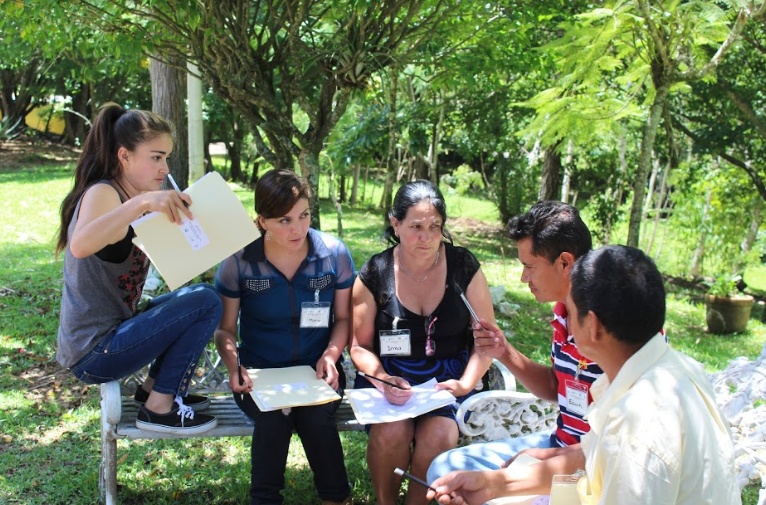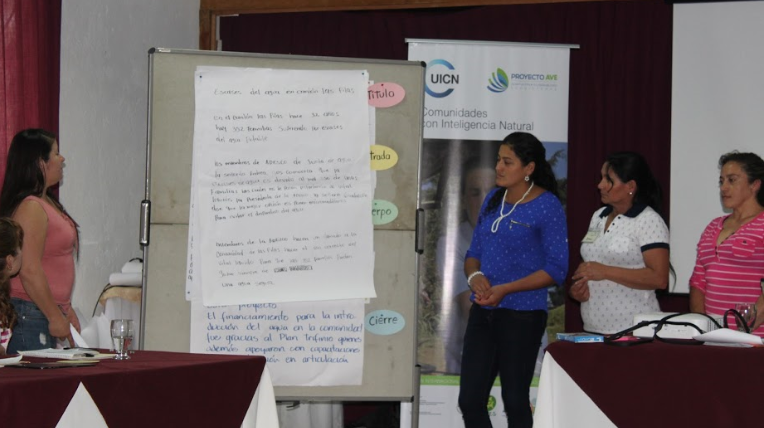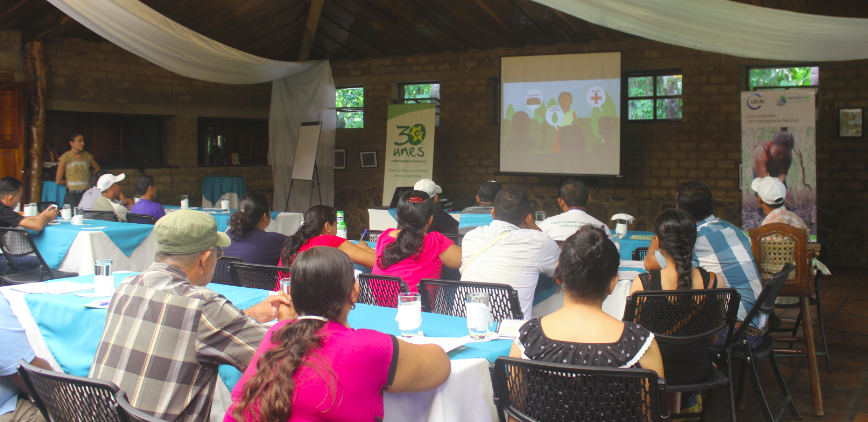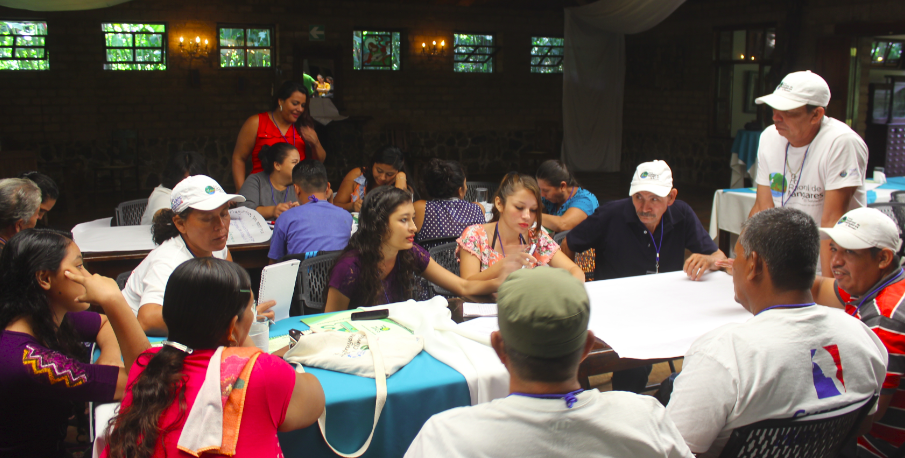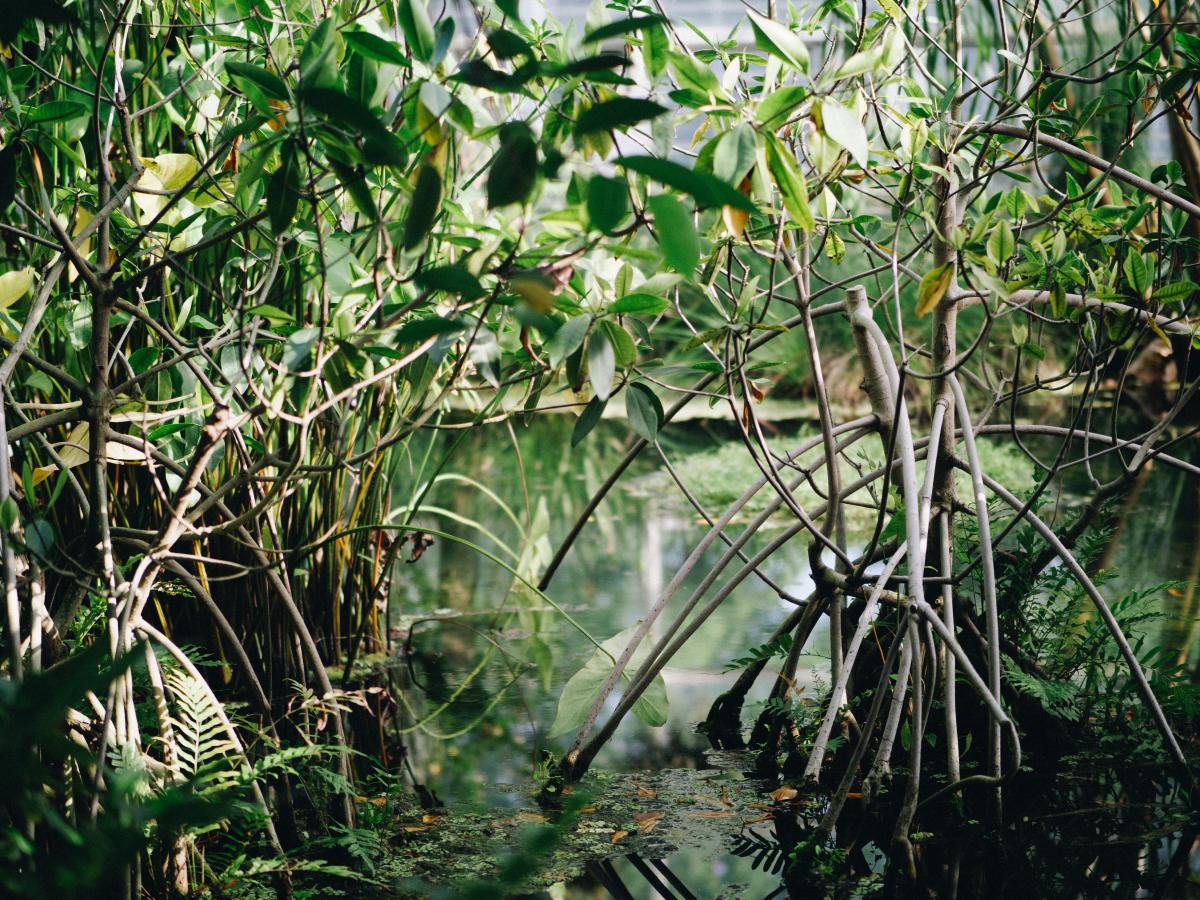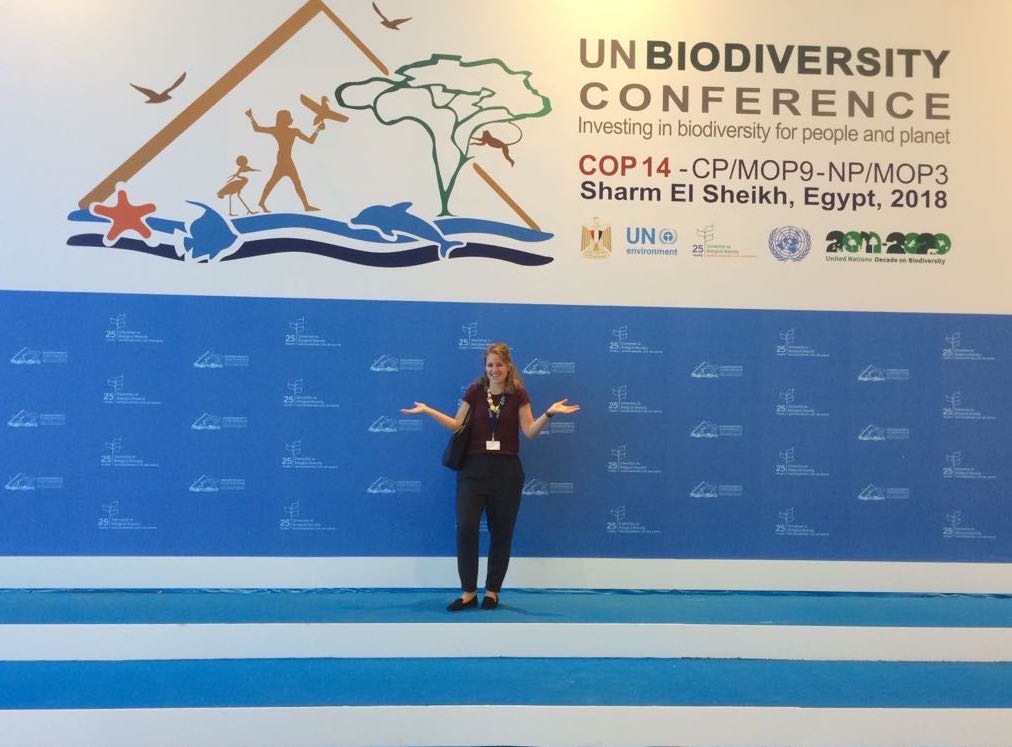Community Leaders Train to Become Better Communicators
Four days of lessons on theoretical concepts and practical exercises to improve communication skills.
Mesoamerica, August 2017. Ecosystem-based Adaptation (EbA) helps communities tackle challenges arising from climate change.
Project AVE (Adaptation, Vulnerability and Ecosystems) aims to promotes AbE through better understanding and capacity to cope with climate change; a strengthened institutional framework and coordinated public policies; the strengthening of governance systems and local capacities; and concrete, science-based evidence of the effectiveness and benefits of EbA. The project is implemented in Mexico, Guatemala, Honduras, El Salvador, Costa Rica and Panama, in the Cahoacán, Coatán, Goascorán, Sumpul, Paz and Sixaola river basins, respectively.
In each of the sites, local leaders coordinate policy advocacy processes. Some of these men and women are on basin and microbasin councils, hold meetings with local governments and attend national and international events. The four-day workshops have been organized to strengthen their communication capacities and help them build practical skills in using tools for interviews, communicating local problems and actions and helping scale up the work of Project AVE.
Theoretical content and practical participatory activities were prepared especially for the workshops. Participants practiced giving presentations in different scenarios and learned key aspects of being a good spokesperson, proper use of physical space and tone of voice, preparation for being interviewed and how to hold a good interview. In some cases they created radio and television programs.
Theoretical concepts focused on news (what is news and what isn’t), how to create clear messages and driving ideas, formulating a communication plan, and follow up to ensure effectiveness.
The workshops are being given in two rounds (two days each) between July and September 2017, with 278 people attending the first round. The needs of community women were taken into consideration, in that mothers could bring their children to the activity if they wished. The second round of workshops will end on the 6th of September.
The range of participants includes people who work in institutions or local communication media, belong to a water board or committee, members of ejidos, farmers, educators, indigenous representatives, and others. The experience promotes convergence among these diverse actors.
Workshops have a participatory format to build and strengthen the skills necessary for successful communication and advocacy, such as public speaking, preparing a news release, managing social networks, cell phone photography, creativity, critical thinking and female leadership as a core aspect of spokesmanship.
Valentina Ortíz, president of the community nursery in Tojhoj Grande, municipality of Tacaná in the Department of San Marcos, Guatemala, commented: “I really like to learn, in order to do my work better and publicize it so that other people also participate.”
The nursery headed by Mrs. Ortiz grows different species of trees to reforest the Coatán river basin.
When the workshops conclude, a methodological guide will be prepared for local communities to formulate and carry out communication and advocacy plans, it will help those leaders to replicate the same workshops to other audiences in their community.
Project AVE is implemented by the IUCN and supported through the International Climate Initiative of the Federal Ministry for the Environment, Nature Conservation, Building and Nuclear Safety of Germany.
